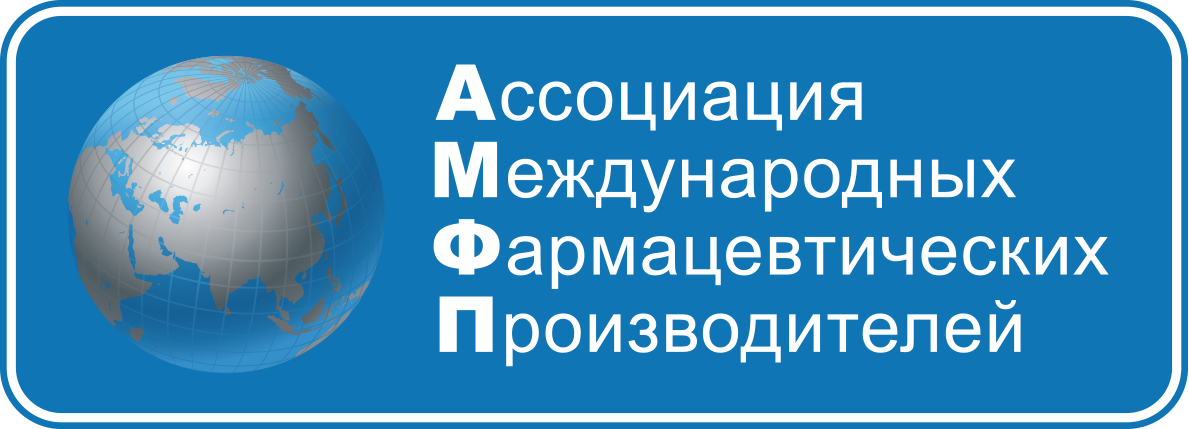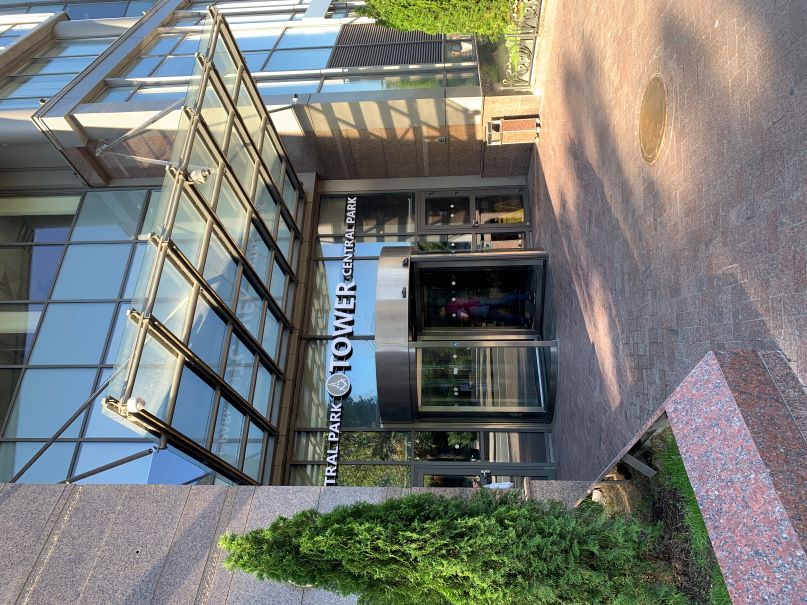Effective Pharmacovigilance system is the Basis of Safety and Wellbeing of Patients
17.10.2018The first International Conference “PHARMACOVIGILANCE. Challenges and opportunities”, unprecedented in its speakers and content, took place on October 10, 2018 in Moscow. More than 600 experts in the field of drug safety monitoring took part in the Conference. The event was organised by the Federal Service for Surveillance in Healthcare (Roszdravnadzor) and the Association of International Pharmaceutical Manufacturers (AIPM).
The Conference speakers included heads of the Uppsala Monitoring Centre (UMC) WHO Collaborating Centre for International Drug Monitoring, the Council for International Organizations of Medical Sciences (CIOMS), the MedDRA Maintenance and Support Services Organization (MedDRA MSSO), the International Society of Pharmacovigilance (ISoP), the Federal Service for Surveillance in Healthcare and its regional bodies, as well as representatives of the Eurasian Economic Commission, regulatory authorities and expert organizations of the EAEU member states, patient organizations of the EU and Russia, scientific community represented by clinical pharmacologists and employees of leading Russian universities from different Russian regions, experts from the Association of International Pharmaceutical Manufacturers and AIPM member companies.
The programme of the Conference included different discussion formats, including a plenary meeting chaired by M. A. Murashko, Head of the Federal Service for Surveillance in Healthcare, and V.G. Shipkov, Executive Director of the Association of International Pharmaceutical Manufacturers, as well as expert sessions, round table and workshops.
During the Conference, Roszdravnadzor presented a video for healthcare professionals on the mandatory procedure of reporting cases of drug-related adverse reactions to the regulatory authorities.
Opening a conference, Mikhail Murashko, Head of the Federal Service for Surveillance in Healthcare, said: “I hope that our Conference will serve as a new impetus for the development of pharmacovigilance in the Russian Federation and Eurasian Economic Union, and substantially contribute to the international pharmacovigilance system. Federal Law № 61-FL “On Circulation of Drugs” made it compulsory for pharmaceutical companies to create a pharmacovigilance system, as well as to inform Roszdravnadzor of severe adverse drug reactions and provide periodic drug safety reports promptly. The transition to electronic submission of documents helped us to significantly increase the volume of received data and to expand the circle of regular report senders. Today, the national pharmacovigilance database includes more than 170,000 reports, while the annual number of adverse reaction reports is around 30,000. One of the goals of our event is equalising the adverse reactions reporting rates in Russia, as well as the pursuit of compliance with the principles of high-quality healthcare on the part of each region. The pharmacovigilance framework in our country is based on the best international standards, however, at the moment we need to establish a dialogue with international experts in the field of drug safety”.
On behalf of the industry, the Conference participants were greeted by Vladimir Shipkov, Executive Director of the Association of International Pharmaceutical Manufacturers. He mentioned that this Conference was the first and unique in the modern Russian history. “The industry, as a reliable partner of the Russian government and healthcare system, has co-organised this highly important event, which is aimed at ensuring patient safety and perfecting the pharmacovigilance system. The reliability and efficiency of the pharmacovigilance system are becoming more important than ever. We highly appreciate Roszdravnadzor's achievements in terms of aligning the Russian legislation with international standards and approaches and thank Russian regulatory authorities for their trust in using the industry's expert potential. Our main mutual goal today is to organise the appropriate law enforcement in the sphere of pharmacovigilance on the part of each and every participant”, - he noted.
The plenary session was continued by Marie Lindquist, Head of the WHO Collaborating Centre for International Drug Monitoring; her report highlighted global trends in the sphere of pharmacovigilance project implementation. She said that today international cooperation and exchange of data and professional knowledge is an indispensable condition for the efficient functioning of drug monitoring agencies and regulatory initiatives in the field. The key success factors include integration of the pharmacovigilance system into the general healthcare system, shifting of priorities from data collection towards data usage for scientifically justified decision making with an emphasis on patient needs. Human health is the main goal of all healthcare professionals, believes Marie Lindquist.
Hervé Le Louet, President of CIOMS, thanked his colleagues from WHO for long-standing and efficient work and implementation of modern initiatives in the sphere of global pharmacovigilance practice. He dedicated his speech to the issue of risk management in the 21st century. “Currently, about 197,000 people in the European Union die because of adverse drug reactions every year; most of these deaths can be prevented. As a result, the social expenses reach around 80 billion euro per year. Even small improvements in the sphere of pharmacovigilance have a major influence on public healthcare and society as a whole. Today, the key objectives include globalisation of the systems, which will provide experts with more extensive patient participation, an improvement in data quality, and, most importantly, access to data and evidence from real clinical experience. This, in turn, will help us to create a model of validated instruments and methods for the development and implementation of prognosticated pharmacovigilance, which will broaden the approach to risk management in this sphere.”
Marco Greco, President of the European Patients' Forum, talked about the international experience of patient participation in the improvement of human health. He drew the audience's attention to the fact that any initiative in the field of pharmacovigilance must be based on high-quality data, which is why it is so important to listen to patients as a data source. “Today, the role of the patient in pharmacovigilance has so far been underappreciated. Meanwhile, our experience shows that cooperation with patients helps to bridge the gap between clinical trial data and real data on the use of medicines, as well as increase the transparency and trust in the pharmacovigilance authorities.” Marco Greco also talked about the work of the Pharmacovigilance Risk Assessment Committee (PRAC), namely the participation of patients in public hearings dedicated to the evaluation of information on risk mitigation measures related to the use of medicines. He noted that cooperation of the European Medicines Agency and patients complements scientific discussions with information on practical aspects of the patients' everyday life and increases the transparency and patients' trust. The speaker expressed confidence that the integration of patients into relevant organisations is an essential component of an effective and reliable pharmacovigilance system.
An important stage of implementing international cooperation in the field of pharmacovigilance is the creation of a lingua franca for pharmacovigilance experts, as well as the international alignment of coding standard for drug safety information. This is why the Medical Dictionary for Regulatory Activities (MedDRA) was created. The project was presented personally by the Director of the MedDRA MSSO, Patrick Revelle. He said that the MedDRA was created as a unified global standard for pharmacovigilance. Moreover, the MedDRA will soon be available in Russian thanks to the cooperation of the MedDRA MSSO, Roszdravnadzor, and AIPM experts.
Sergey Glagolev, Deputy Head of the Division, Head of the Pharmacovigilance Department of the Division of Organization of Quality Control of Medicines of Roszdravnadzor, described the current state of the Russian pharmacovigilance and its alignment with the international approaches and requirements of the Eurasian Union. “Today, virtually all pharmacovigilance systems face ever increasing demands. They become more complicated due to an increase in the number of drug names, as well as genetic developments, orphan products, and the development of biotechnologies. It is obvious that pharmacovigilance must not only be based on spontaneous reports but also implement comprehensive measures that enable the use of drugs. Good pharmacovigilance practices (GVP) of the EAEU are a mandatory standard for organising drug safety monitoring of Marketing Authorisation Holders. The transition to GVP standards increases the protection of patients, creates conditions for safe use of innovative and breakthrough drugs, and increases the export potential of the domestic industry,” - he concluded.
Sergey Zyryanov, Head of the Department of General and Clinical Pharmacology of the RUDN University, has described the current pharmacovigilance practice from the perspective of the Russian medical community. According to the data he presented, , not only the population but also the majority of doctors have a misconception that drugs permitted for wide use in clinical practice have been thoroughly studied and their safety is fully reflected in the Instructions for Use in Russia. In fact, at the time of marketing approval, a new drug has been studied on a limited number of patients and under rather artificial (ideal) conditions. Therefore, relatively rare side effects may remain undetected. Moreover, only a quarter of surveyed medical professionals report adverse drug reactions. He stressed that there is a need to raise awareness of the pharmacovigilance system among the professional community, as the role of doctors in the development of this system cannot be overestimated. “Nothing will change if we don't educate the medical community. This is why, in my opinion, the main pharmacovigilance principles must be integrated both into the higher medical education system and in all the cycles of continuous education. Moreover, it is important to preserve regional drug monitoring centers. I am sure that further development of the clinical pharmacology service will also help to improve the system”, - said Sergey Zyryanov.
Yuri Zhulev, President of the Russian Hemophilia Society and Co-chair of the All-Russian Patient Union, talked about the pharmacovigilance system from the patient's perspective. He said that, although pharmacovigilance is discussed during events conducted by patient societies, most patients don't know or understand the system's principles; however, they can definitely learn about it through their physician (and this process must be standardized) or through manufacturers (and in this case it is important to specify the forms and mechanisms of informing patients), and of course with the help of the relevant patient organisations. “We, Roszdravnadzor, and AIPM have published a brochure aimed at enhancing cooperation of all parties involved in pharmacovigilance: it contains information on patient rights and actions in case of adverse reactions, as well as the legal aspect of the issue”, - he said.
All participants noted the richness and practical applicability of the event's content. It was highly evaluated by the regulatory authorities and industry experts who suggested that such discussions should be conducted on a regular basis.
The Conference presentations, photos and video are available following the links:

